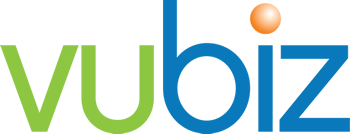 |
Written by Liz McDermott |
The story of FERPA is ongoing, and its following chapters will be written by educators, policymakers, technologists, and privacy advocates working together to navigate the complex landscape of student privacy in the 21st century. As we face new privacy challenges, the enduring importance of FERPA as a guardian of student privacy remains clear, reminding us that in pursuing educational excellence, we must never lose sight of the fundamental right to privacy.
FERPA doesn't exist in isolation. It often intersects with other privacy laws, creating a complex landscape for educational institutions. Let's explore some of these intersections.
|
This article is brought to you by Vubiz’s FERPA: An Overview course, designed for educational organizations aiming to enhance employee comprehension and ensure adherence to regulations. |

FERPA and HIPAA
The Health Insurance Portability and Accountability Act (HIPAA) is often confused with FERPA when it comes to student health records:
- In K-12 settings, student health records maintained by the school are generally considered education records under FERPA, not medical records under HIPAA.
- For college students, health records maintained by a campus health clinic are typically considered treatment records under FERPA, not HIPAA records.
- However, if a school provides health care and bills the general public electronically, those records may be subject to HIPAA.
FERPA and State Privacy Laws
Many states have student privacy laws that may be more restrictive than FERPA:
- Schools must comply with both FERPA and applicable state laws.
- When state law conflicts with FERPA, the more stringent law typically applies.
- Some states have passed laws explicitly addressing student data privacy in digital environments.
FERPA and the Protection of Pupil Rights Amendment (PPRA)
The PPRA works alongside FERPA to protect student privacy:
- While FERPA focuses on educational records, PPRA addresses the collection and use of information for marketing purposes and specific physical examinations.
- Schools must obtain parental consent before minors participate in any survey, analysis, or evaluation revealing certain types of sensitive information.
FERPA and the Children's Online Privacy Protection Act (COPPA)
COPPA comes into play when schools use online educational services:
- COPPA requires parental consent before collecting personal information online from children under 13.
- Schools can consent on behalf of parents to use educational online services, but they must provide notice and the opportunity to opt-out.
FERPA and the Individuals with Disabilities Education Act (IDEA)
IDEA includes confidentiality provisions that align with FERPA:
- IDEA requires schools to inform parents when they collect, maintain, or use personally identifiable information about students with disabilities.
- The confidentiality provisions in IDEA incorporate FERPA's protections and add additional requirements specific to students with disabilities.
Grasping the intricate intersections of privacy law within educational settings enables institutions to implement robust and comprehensive protective measures for students. A multifaceted approach to privacy is essential, as it allows for a thorough examination of the diverse legal frameworks that govern student information and how they converge and diverge in different educational contexts. By embracing this holistic perspective, schools and universities can better navigate the complexities of privacy regulations and safeguard the rights and information of their students.
Are you looking for basic FERPA training to meet compliance?
Enroll your staff in Vubiz’s FERPA: An Overview course today and start increasing compliance awareness.
